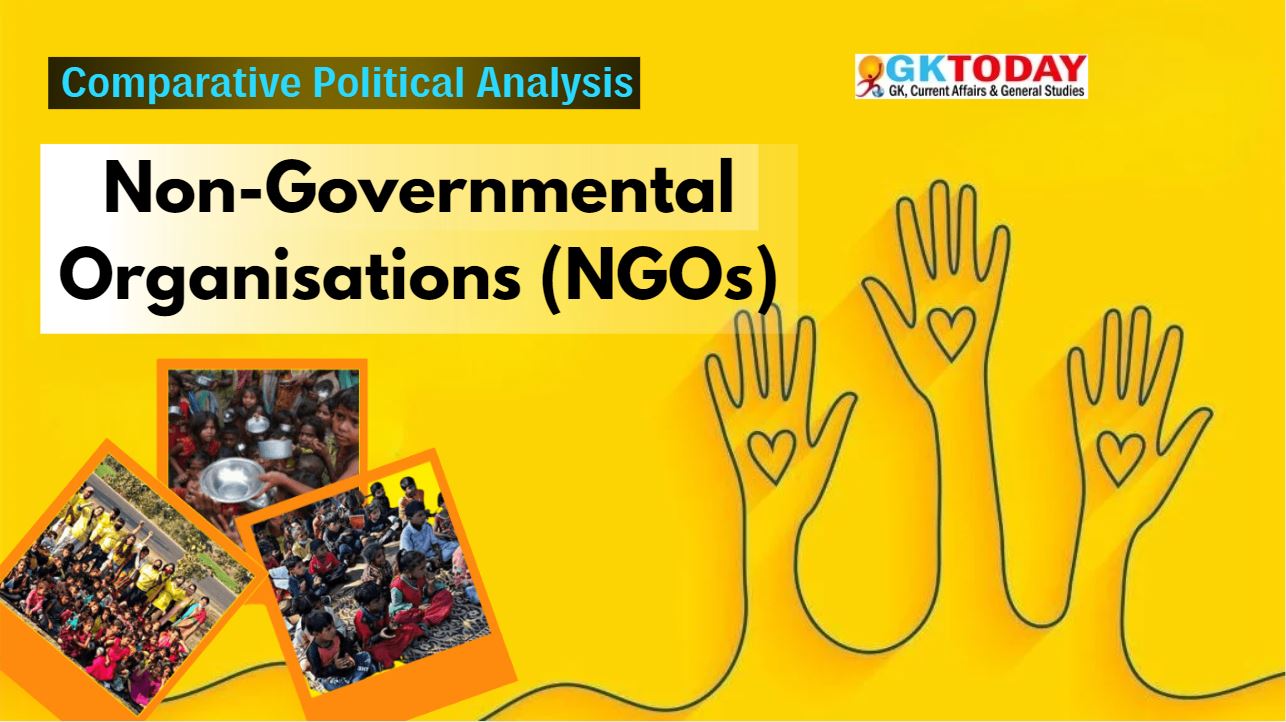Non-Governmental Organisations (NGOs) in Comparative Political Analysis
Non-Governmental Organisations (NGOs) are essential components of the modern political landscape. They operate independently of government influence and focus on several social, political, environmental, and humanitarian issues.
Definition of NGOs
NGOs are non-profit organisations that function without government control. Their primary aim is to address various societal issues. They work towards making a positive impact in communities around the globe.
Characteristics of NGOs
- Non-Profit: NGOs do not operate for profit. Any surplus funds are reinvested into their missions.
- Voluntary: Many NGOs rely on volunteers for support and participation.
- Independent: They function autonomously, although some may receive government funding.
- Mission-Driven: Each NGO focuses on specific causes, such as human rights or environmental protection.
Types of NGOs
1. Operational NGOs: Focus on implementing projects and programmes to achieve their goals. 2. Advocacy NGOs: Aim to influence public policy and raise awareness
Functions of NGOs
- Service Delivery: NGOs provide essential services such as health care, education, and disaster relief.
- Advocacy and Awareness: They raise awareness and advocate for policy changes on social issues.
- Capacity Building: NGOs enhance the skills and capabilities of local communities and organisations.
- Research and Policy Analysis: Conduct research to inform policy decisions and public discourse.
Funding Sources
NGOs rely on various funding sources to sustain their operations:
- Donations: Contributions from individuals, corporations, and philanthropic foundations.
- Grants: Funding from government agencies, international organisations, and other NGOs.
- Membership Fees: Revenue generated from members who support the organisation.
- Commercial Activities: Some NGOs engage in income-generating activities to support their work.
Role of NGOs in Society
NGOs play a multifaceted role in society:
- Social Change: They promote social justice and human rights.
- Accountability: NGOs act as watchdogs, holding governments and corporations accountable.
- Community Engagement: They encourage community participation and empower marginalised groups.
Global Presence of NGOs
NGOs are present at both local and international levels:
- International NGOs (INGOs): Operate across national borders, addressing global issues (e.g., Amnesty International, Greenpeace).
- Local NGOs: Focus on specific local issues and communities, often more attuned to local needs.
Challenges Faced by NGOs
Despite their impact, NGOs face several challenges:
- Funding Constraints: Dependence on external funding can limit sustainability.
- Political Pressure: Governments may impose restrictions that hinder operations.
- Accountability and Transparency: Maintaining trust with stakeholders is crucial.
- Competition: Increasing competition for funding and resources among NGOs.
Impact Measurement
Evaluating the effectiveness of NGOs is vital:
- Qualitative Assessments: Social impact is evaluated through case studies and testimonials.
- Quantitative Metrics: Data and statistics are used to measure outcomes and effectiveness.
Notable Examples of NGOs
Several NGOs have made contributions:
- Amnesty International: Focuses on human rights advocacy.
- World Wildlife Fund (WWF): Works on environmental conservation.
- Doctors Without Borders (Médecins Sans Frontières): Provides medical assistance in crisis situations.
Legal Framework for NGOs
The legal status of NGOs varies by country:
- Registration and Regulation: NGOs often must register with government authorities.
- Tax Exemptions: Many countries provide tax benefits for donations to registered NGOs.
International Frameworks for NGOs
NGOs often engage with international frameworks:
- United Nations: Many NGOs participate in UN processes and contribute to global discussions.
- Global Partnerships: Collaborate with international organisations and governments for greater impact.
NGOs are vital actors in the political landscape. They influence policy, provide essential services, and advocate for change across various sectors. Their independence and commitment to social causes enable them to address critical issues and promote positive change in society.


